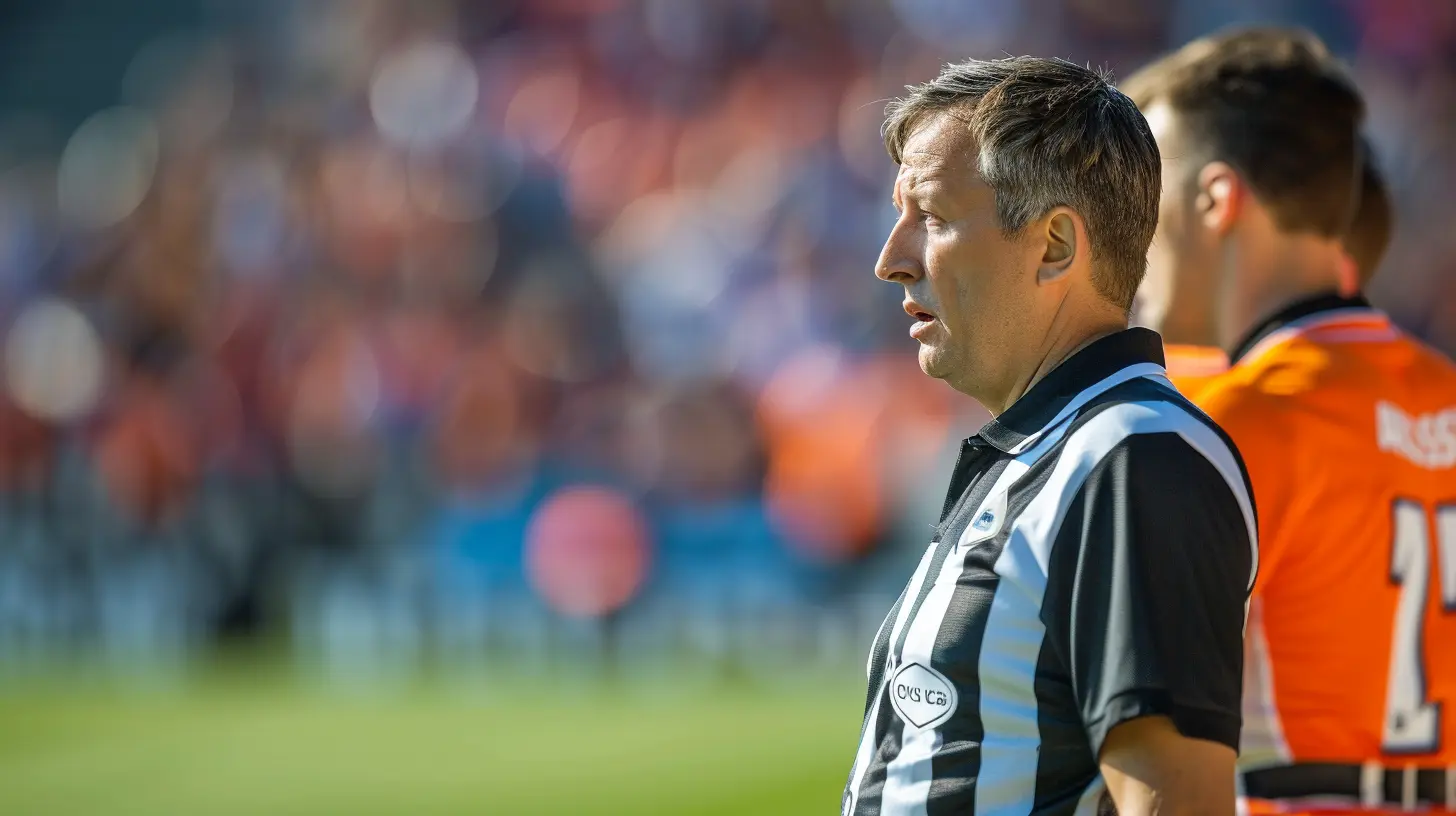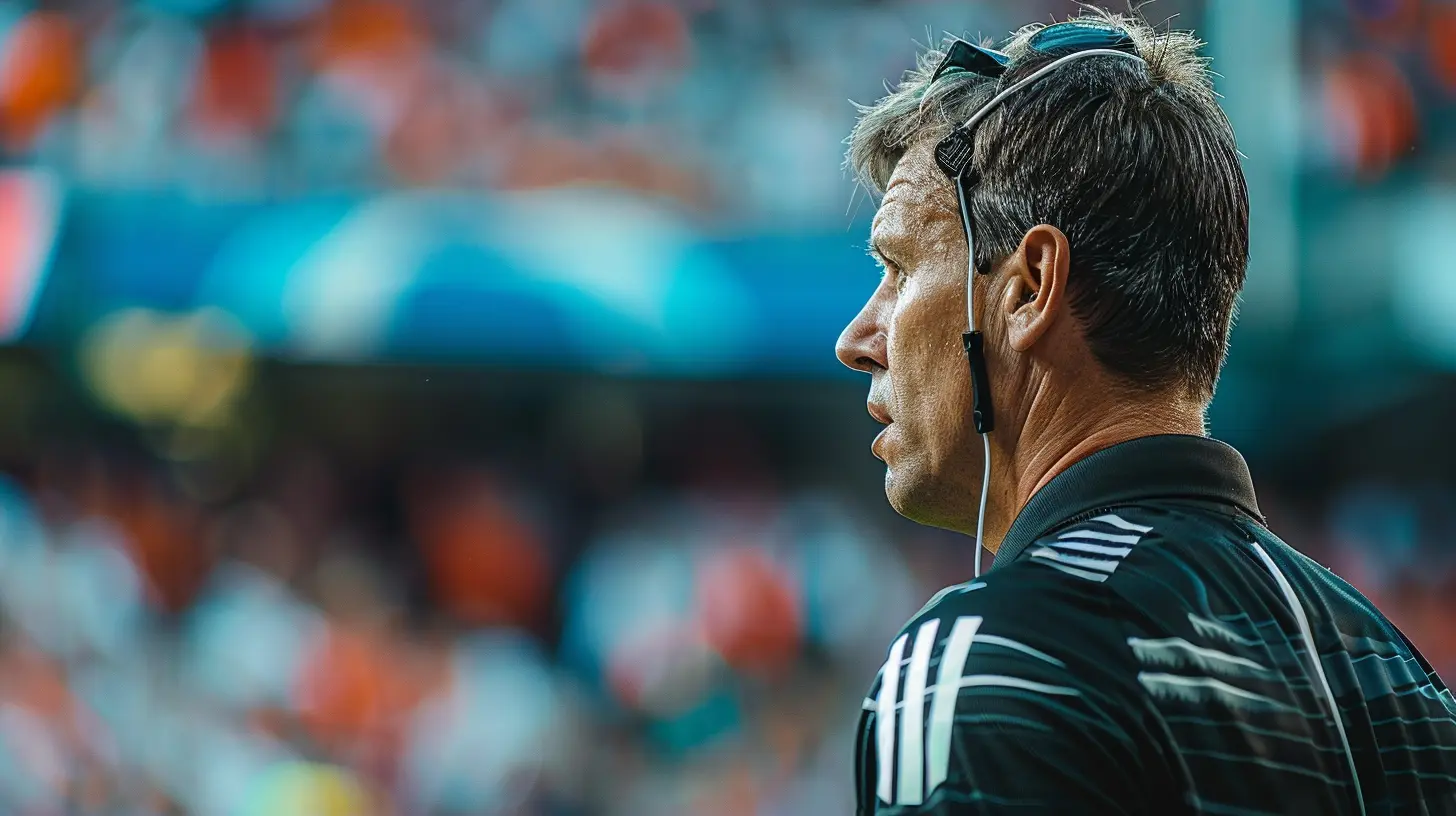Referees and the Media: Navigating Public Scrutiny
4 September 2025
Referees are the unsung heroes of sports. They ensure fair play, make split-second decisions, and often take the heat from fans, players, and coaches. But in today's world, their biggest challenge isn't just making the right calls on the field—it’s handling the relentless scrutiny from the media and the public.
With the rise of social media, 24/7 sports coverage, and instant replays, referees are more exposed than ever. Every decision they make is analyzed, criticized, and sometimes even ridiculed. So, how do referees navigate this minefield of public scrutiny? Let’s dive into it.

The Role of Referees in Modern Sports
Referees have one of the toughest jobs in sports. They aren’t just rule enforcers; they also manage the flow of the game, control tempers, and ensure that competition remains fair.But unlike players or coaches, referees don’t get the glory when things go right. Instead, they’re often blamed when things go wrong. One mistake—or even a perceived mistake—can turn them into villains overnight.

The Media’s Influence on Referees
The Power of Instant Replays
Remember the days when a referee’s call was final? Those days are long gone. Now, thanks to instant replays, slow-motion footage, and multiple camera angles, every decision is dissected in real time.TV analysts break down calls frame by frame. Commentators debate whether the referee got it right or wrong. Social media explodes with discussions, memes, and criticism. Even when referees follow the rulebook to the letter, their decisions are still questioned.
It’s like being under a microscope—every flaw, every mistake, magnified for the world to see.
Social Media: A Double-Edged Sword
Social media has given fans a voice, but it’s also made referees an easy target. A controversial call can turn into a trending topic within minutes. Fans, players, and pundits don’t hold back, and unfortunately, some take it too far with personal attacks and threats.While some referees try to ignore the noise, others have had to step away from officiating due to excessive abuse. It begs the question: Is the scrutiny going too far?
Media Bias and Narrative Building
Let’s be honest—sports media thrives on controversy. A debatable referee decision can be spun into a story that fuels engagement, clicks, and heated debates on TV and social media.Sometimes, referees are unfairly labeled as biased or incompetent, even when they’re making the best decision possible under the circumstances. This can create a narrative that sticks, influencing how fans perceive certain officials in future games.

The Psychological Toll on Referees
Referees aren’t robots; they’re human beings with emotions, families, and careers on the line. Constant criticism and public scrutiny can take a toll on their mental health.Imagine making one call—just one mistake—and having millions of people rip you apart for it. That kind of pressure can be overwhelming. It’s no surprise that many referees struggle with anxiety, stress, and even burnout due to the relentless criticism.
Some leagues recognize this issue and are implementing mental health support for referees, but there’s still a long way to go.

Strategies Referees Use to Handle Public Scrutiny
So, how do referees cope with the never-ending wave of criticism? Here are a few strategies they rely on:1. Developing Thick Skin
Referees understand that criticism is part of the job. Many of them learn early on not to take things personally and to focus on making the right calls rather than pleasing the crowd.2. Engaging in Continuing Education
To minimize errors, referees undergo continuous training and review game footage to analyze their performance. Many leagues even have post-game review sessions where officials go over key decisions to learn and improve.3. Limiting Social Media Exposure
Some referees choose to stay off social media entirely. Others use it selectively, avoiding toxic discussions and focusing only on constructive feedback.4. Support Systems and Peer Networks
Just like players have coaches and teammates, referees rely on their peers for support. Talking with fellow officials who understand the pressures of the job helps them navigate criticism and stay motivated.5. Media Training and Public Relations
Many top-tier referees now receive media training to handle press conferences, answer tough questions professionally, and maintain their credibility in the public eye.Should the Media Be More Responsible?
While referees must develop coping mechanisms, the media also has a responsibility to cover officiating more fairly.Yes, analyzing referee decisions is part of sports journalism, but attacking officials personally or fueling unnecessary controversy does more harm than good.
A more balanced approach—highlighting the challenges referees face, offering objective analysis, and promoting respect for officials—could help reduce the negativity surrounding them.
The Future of Officiating in the Media Age
As technology continues to evolve, the scrutiny on referees will only intensify. VAR (Video Assistant Referee) in soccer, AI-driven officiating, and improved instant replay systems are already shaping the future of refereeing.While these innovations can help reduce human error, they also add another layer of complexity. Who gets the final say—the referee or the technology? And will the public ever truly accept officiating decisions without controversy?
One thing is certain: the relationship between referees, the media, and fans will continue to be a hot topic in sports.
Final Thoughts
Referees will never escape criticism entirely—that’s just the nature of the job. But the ongoing media scrutiny they face is a tough challenge, one that requires thick skin, professionalism, and mental resilience.At the same time, the media and fans must recognize that referees are an essential part of the game. Without them, sports wouldn’t function. So maybe, just maybe, it’s time we cut them some slack.
all images in this post were generated using AI tools
Category:
RefereeingAuthor:

Umberto Flores
Discussion
rate this article
1 comments
Naya Hahn
Great insights on a tough role!
October 9, 2025 at 4:39 AM

Umberto Flores
Thank you! I appreciate your feedback!


